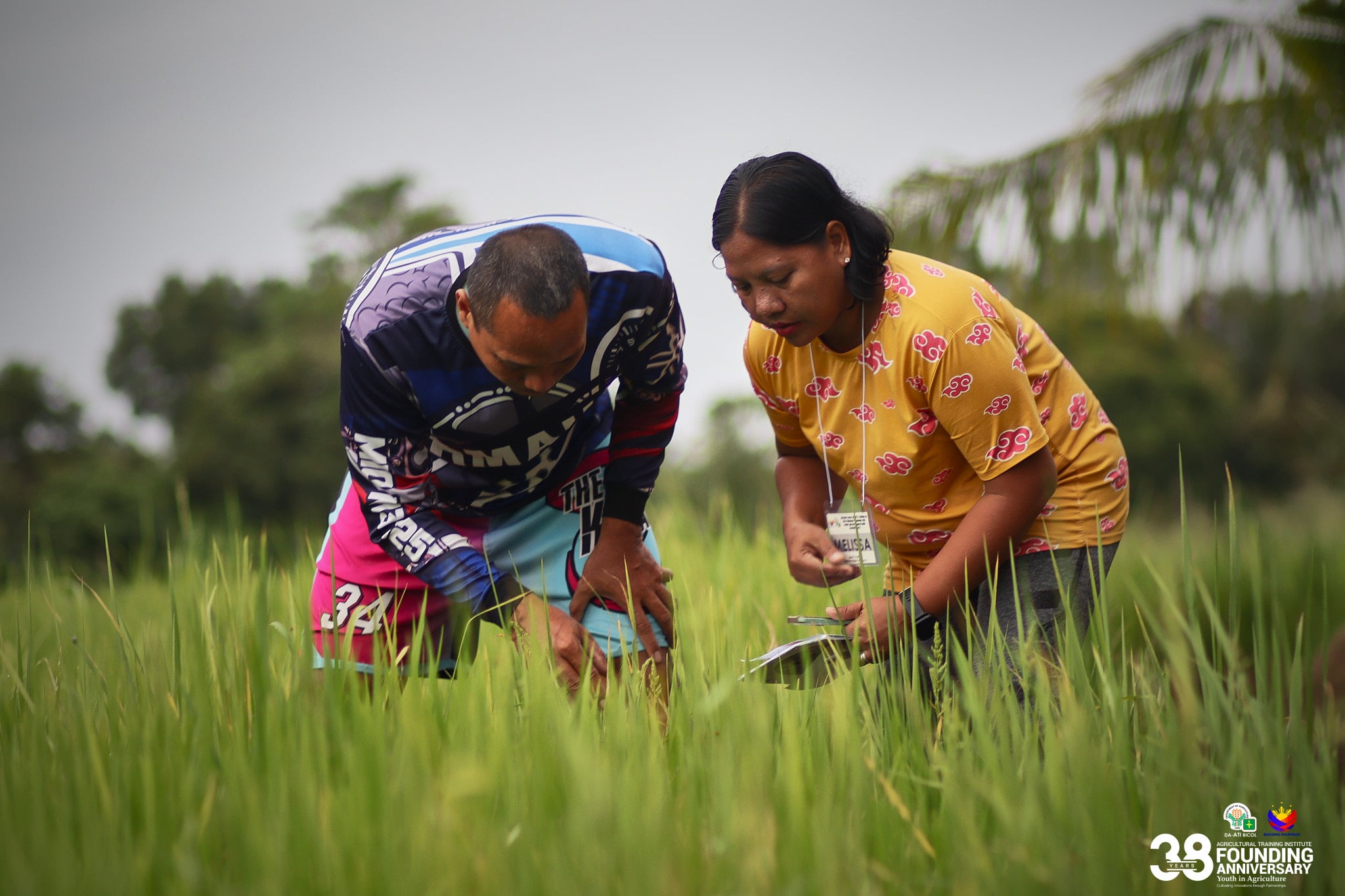
The participants conduct an Agro-Ecosystem Analysis (AESA) in the rice field to observe crop health and environmental conditions.
MAGARAO, Camarines Sur – In a significant move to enhance rice farming practices and promote gender-inclusive agricultural development, the Agricultural Training Institute-Regional Training Center V (ATI Bicol) conducted a Refresher Course on Rice Production Technology with Gender and Development (GAD) Concepts for Local Farmer Technicians (LFTs) from March 17 to 21, 2025, at Sonrisa Farm, Magarao, Camarines Sur.
The training, conducted in collaboration with the Department of Agriculture – Regional Field Office 5 (DA-RFO 5) Rice Program, aimed to equip LFTs with updated rice production technologies and effective extension delivery strategies. Participants included farmer-technicians from the rice cluster provinces of Camarines Sur, Catanduanes, and Albay.
Agricultural experts and specialists from ATI Bicol, DA-RFO 5, Naga City Agriculture Office, and the Philippine Commission on Women served as resource speakers, providing participants with in-depth discussions on rice production technologies and best practices.
Among the key topics covered were the PalayCheck System, Balanced Fertilization Strategy, Pest and Disease Management, Rice-Duck Farming Technology, and Organic-Based Biomass Recovery. The discussions aimed to strengthen farmers’ understanding of sustainable and science-based rice farming approaches.
On the second day, Mr. Francis T. Abasola from the Naga City Agriculture Office guided the participants through the six key checks of the PalayCheck System, emphasizing proper field leveling, synchronous planting, and pest management strategies. Additionally, Christian T.R. Tosoc shared insights on the importance of communication in agricultural extension, reminding participants that “communication is the heart of extension.”
The training also integrated a field activity on Agro-Ecosystem Analysis (AESA), where participants conducted actual data collection in rice fields. Their findings were later presented and critiqued to improve their ability to convey technical knowledge effectively.
Further reinforcing the course’s holistic approach, Ms. Maristela T. Santy, an accredited Gender and Development (GAD) trainer, led a discussion on gender equality in agriculture, focusing on the Magna Carta for Women and Violence Against Women and Children (VAWC). This session emphasized the importance of gender sensitivity in farming communities.
At the end of the training, participants developed and submitted re-entry plans outlining how they would share their newly acquired knowledge with their local farming communities. These plans will be monitored by the training management team over the next six months to ensure implementation and impact.





